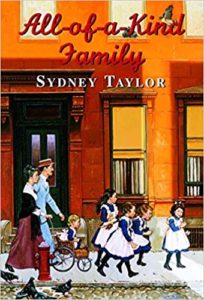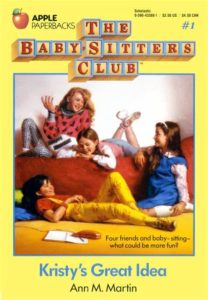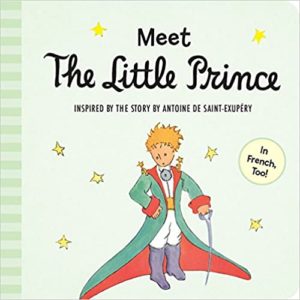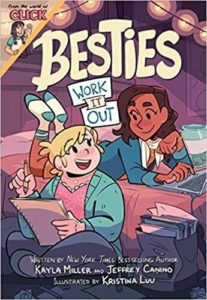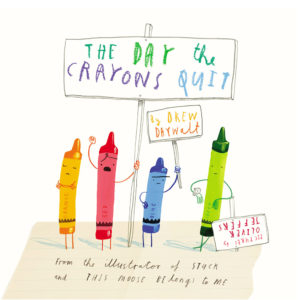 This month’s Industry Insider interview is with Tricia Lawrence, an agent at the Erin Murphy Literary Agency (EMLA). She joined the agency as a social media strategist in 2011 after nearly two decades as a developmental and production-based copyeditor. Born and raised in Oregon and now living in Seattle, Tricia’s often called the “Pacific Northwest branch” of EMLA.
This month’s Industry Insider interview is with Tricia Lawrence, an agent at the Erin Murphy Literary Agency (EMLA). She joined the agency as a social media strategist in 2011 after nearly two decades as a developmental and production-based copyeditor. Born and raised in Oregon and now living in Seattle, Tricia’s often called the “Pacific Northwest branch” of EMLA.
Let’s get to know Tricia a bit more by playing Eight Truths and One Lie. Ready?
- She has watched 500+ hours of BBC America.
- After binge-watching Project Runway, she spent a TON of time draping and fitting a half-size mannequin.
- She has the innate ability to stack books as high as she is tall.
- She’s an avid runner.
- She likes to collect rocks.
- She’s a big Seattle sports fan.
- She’s a bonafide piano plunker.
- She once shared a blueberry bagel with Beyoncé.
- Books she’s authored have been sold off Target endcaps.
Can’t tell which is the lie? The answer will be revealed in the interview…somewhere. And since you likely really want to know that answer, let’s get right to the interview.
- Tricia’s Website
- Tricia’s Literary Agency
- Tricia’s Instagram
- Tricia’s Twitter
- Tricia’s Pinterest
- Tricia @ Publisher’s Marketplace
RVC: When did you first discover your love for books?
TL: I was about 8 and realized if I slapped down my family’s library card, the librarians had to let me borrow the books. I would clear off a shelf of books at a time, and then read them in about a day, my long legs slung over the arm of our wingback chair. And then I would pester my parents to drive me to the library to get more.
I began to get a reputation at that library …
RVC: How did school foster or get in the way of your future career in the book industry?
TL: I struggled in school, only because I was often daydreaming, but I was alternating between two schools for most of my grade school years. It was my parents’ dream for me to attend a Christian grade school, but they didn’t have the money every year, so I struggled to write a complete sentence in third-grade PUBLIC school, only because in second-grade PRIVATE school, our studies hadn’t gotten there yet. These were not the best years of my life. It created a lot of self-doubt, but I knew I was going to be a writer. And I so in spite of all of this, I reveled in my love for books.
RVC: After college, you spent some time in the writing/content-creation side of the medical world. What lessons from those jobs do you use most in your work now as a literary agent?
TL: That no matter how much education you have, it doesn’t mean you can write a story that can keep someone engaged. I edited for a lot of doctors and just like so many have awful handwriting, a lot of them struggled with writing. They were great partners, however, because the best conversations I remember are discussing complex sentences as well as phlebotomy.
RVC: What convinced you to make the move to joining the Erin Murphy Literary Agency (EMLA)?
TL: I’ve LONG been an admirer of Erin Murphy and the kind of agency she has created. She actually turned me down the first time, but I came back a few months later, and voila! Sorta like querying sometimes. One “no” isn’t often the last word.
RVC: I love hearing success stories based in perseverance. Now, what’s the most important things authors should know or understand about effectively using social media to support their careers?
TL: That social media DOES NOT MATTER without the writing. It supports the book, but it doesn’t supersede the book. You only need a massive social media platform if you’re writing nonfiction for the mainstream adult trade market, say, if you’ve got a new approach to phlebotomy or something (ha!), but the story matters the most in children’s literature and teen literature. It’s ALL that matters.
That said, pick the social media tools you enjoy and leave off the rest. If you don’t like Twitter, it will be obvious. If you LOVE TikTok, go with god and have fun.
RVC: Let’s talk about you as an agent. What’s the first picture book you sold?
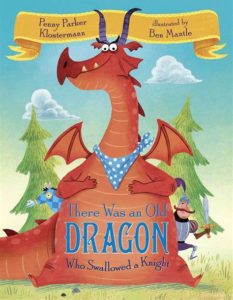 TL: It was There Was an Old Dragon Who Swallowed a Knight, a magnificent rhymer by the amazing Penny Parker Klostermann. I remember sitting out on the lawn checking my email and then staring up at the trees in our backyard in awe of the power of picture books. I had fallen so hard for Penny’s text and I had sent it to an editor who also loved it. It’s the magic beans of this business. If the author has passion for their work, it will spread and it’s a beautiful thing.
TL: It was There Was an Old Dragon Who Swallowed a Knight, a magnificent rhymer by the amazing Penny Parker Klostermann. I remember sitting out on the lawn checking my email and then staring up at the trees in our backyard in awe of the power of picture books. I had fallen so hard for Penny’s text and I had sent it to an editor who also loved it. It’s the magic beans of this business. If the author has passion for their work, it will spread and it’s a beautiful thing.
RVC: What are some other books that just grabbed you at the language level like that?
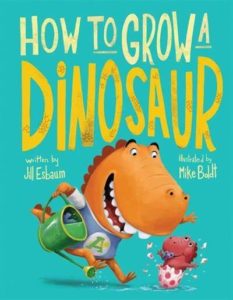 TL: There are so many! From Annie Bailey’s Mud! (2022) to Jill Esbaum’s How to Grow a Dinosaur (2018)–I would need to go on and on and on!
TL: There are so many! From Annie Bailey’s Mud! (2022) to Jill Esbaum’s How to Grow a Dinosaur (2018)–I would need to go on and on and on!
RVC: In terms of your identity as an agent, how would you describe yourself?
TL: Devoted, passionate advocate, and curious.
RVC: Describe your ideal client.
TL: Self-aware, honest, and hardworking
RVC: What’s a project or accomplishment that you consider to be the most significant in your career at EMLA?
TL: I think each time I read a manuscript from a client and think “I love this” and then I convince an editor to also love it is the most significant. I know I’m hedging and also being repetitive, but this…this is the magic.
RVC: I know what you mean. What is the most common misconception about a literary agent?
TL: That once you’ve got the agent, you’ve arrived (and for some that may be true). I believe every time we write something, even if it doesn’t garner agent attention or doesn’t win, we’ve arrived. It’s a big balancing act and each writer will arrive to it in their own way, i.e. has their own goals that make them feel they’ve arrived. Hopefully as an agent, I can help them fine-tune those dreams and reach even farther.
RVC: How do you feel about Art Notes?
TL: I’m feeling pretty good about them. Sometimes they’re just necessary and yet can feel like their own set of rules.
A reminder: if you rely on the art notes to create your story rather than to enlarge and enhance your story, go back through them again and seek out how you might rework anything.
RVC: You seem fairly active with live and virtual events/communities. What do you get out of participating with #DVpit or attending an SCBWI conference as faculty?
TL: A TON. It’s a place for like-minded folks to gather. And now, with opportunities opening for more and more stories, I’m hoping we see even more change and openness. Just because I don’t know, doesn’t mean it’s not important. I think gathering together helps us to understand and to learn. Plus, it’s just nice to hang out with folks who are as addicted to stories as I am!
RVC: You also do a lot of work beyond being an agent. Care to talk about some of your own book writing?
TL: I wrote some books back in the late 1990s that were among the first to get picked up by Target. At the time, Target was not doing a lot of book sales, so I got to be the experiment.
RVC: Lucky you!
TL: I remember buying copies for friends and family and my sister announced to the person checking us out that I was the author. The checkout guy made me open each book and point to my name. It was surreal, but really fun. I love that my own clients get to have that experience now. It’s seriously thrilling. I’ve gotten back to my writing during COVID and I’ve learned so much from my clients as to how to be a writer. Courage, refusal to give up, and more courage!
RVC: I see that you’re doing a lot of painting these days and you’ve said that you regret not taking it more seriously earlier.
TL: I started an experiment making art (watercolor and Procreate on the iPad) just to see if I could. I’m not as diligent as I should be, but I still make art every day. I find that it soothes me and opens up a different part of my brain. I give advice to writers all the time about allowing the creativity to flow through other tactile activities: gardening, making art, knitting. I thought it was time to take my own advice and it has become a lovely hobby.
RVC: How has your work as an artist informed your work as a literary agent?
TL: In so many ways. Having a growth mindset means you work at it. So I go from feeling confident and wheeling and dealing for my clients to trying to make art, where I feel inadequate and like a failure. The tension there is so interesting. It’s a daily journey through that tension, but so worth it. From that tension comes amazing growth, centeredness, and courage!
RVC: Brag time. What upcoming projects are you most excited about?
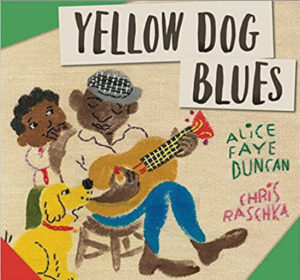 TL: I’m obsessed with Alice Faye Duncan and Chris Raschka’s Yellow Dog Blues (Eerdmans, 2022) coming in September. Chris took Alice Faye’s text and created a masterpiece of art. He painted on and embroidered burlap for each page.
TL: I’m obsessed with Alice Faye Duncan and Chris Raschka’s Yellow Dog Blues (Eerdmans, 2022) coming in September. Chris took Alice Faye’s text and created a masterpiece of art. He painted on and embroidered burlap for each page.
RVC: WOW!
TL: And Kim Rogers’ debut Just Like Grandma (Heartdrum, January 2023) illustrated by Julie Flett. Absolutely beautiful work. I cannot wait. I also cannot wait for Jill Esbaum’s upcoming Stinkbird Has a Superpower (G.P. Putnam’s Sons, 2023) illustrated by Bob Shea. So excited!
RVC: Tricia, it’s time for the SPEED ROUND. Lightning-fast questions and even faster answers, please. Are…YOU…READY?
TL: 100 percent!
RVC: What’s something that will always be in fashion, regardless of how much time passes?
TL: Books.
RVC: What movie quote do you use on a regular basis?
TL: “Run mad as often as you choose, but do not faint.”—wrongly used in the 1999 movie they made of Jane Austen’s Mansfield Park, because the original quote is from Austen’s novel, Love and Friendship.
RVC: You’re hosting a literary ice cream social. What three writers—living or dead, real or imagined—would you invite?
TL: Octavia Butler, Mary Magdalene, Carl Sagan.
RVC: What books are on your nightstand?
TL: Oh god. Hundreds of books (but the nightstand doesn’t support them any longer, so they are on a currently reading bookshelf). HAHAHAHAHA.
I have so many. Right now I have 16 novels from the library (mostly murder/thriller reads, but I’ve been going through this list of debut novels and love being blown away by them all!
RVC: What was the first picture book that gave you a WOW moment?
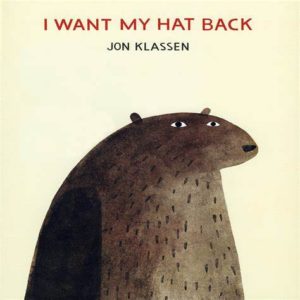 TL: I Want My Hat Back. I’m a dark soul. This book is brilliant.
TL: I Want My Hat Back. I’m a dark soul. This book is brilliant.
RVC: Favorite line from a picture book you repped?
TL:
“Nestled on a garden path
and strewn along the shore.
Scattered on a city block
and on the forest floor …
Tucked in sidewalk crevices
and stuck in mucky ground.
Stretching high and scraping sky,
rocks are all around.”
This is from Lisa Varchol Perron and Taylor Perron’s unannounced co-authored picture book coming in 2024 from Penguin Random House.
RVC: Thanks so much, Tricia! Oh, and by the way, care to reveal which of the biographical nuggets in the introduction is a big stinking whopper of a falsehood?
TL: While I have seen Beyoncé in concert and sang along with everything like the obsessed fan that I am, I unfortunately have never shared a bagel with her. Bey, you want bagels? Call me!


 After working as an Associate Agent and intern at several literary agencies, Jacqui Lipton founded Raven Quill Literary Agency in 2019 and, in 2022, the agency merged with The Tobias Literary Agency where Jacqui continues to focus on developing the careers of unique, high quality, engaging, and often underrepresented voices. She represents a little bit of everything from children’s books through the adult market in both fiction and nonfiction.
After working as an Associate Agent and intern at several literary agencies, Jacqui Lipton founded Raven Quill Literary Agency in 2019 and, in 2022, the agency merged with The Tobias Literary Agency where Jacqui continues to focus on developing the careers of unique, high quality, engaging, and often underrepresented voices. She represents a little bit of everything from children’s books through the adult market in both fiction and nonfiction.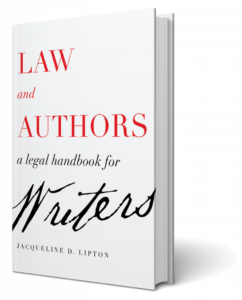
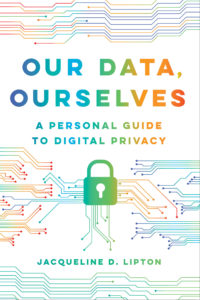

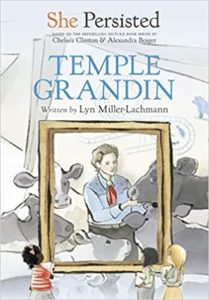
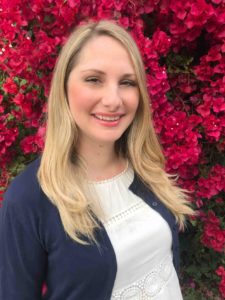 Natalie Lakosil is an agent at the Irene Goodman Literary Agency. An honors graduate of the
Natalie Lakosil is an agent at the Irene Goodman Literary Agency. An honors graduate of the 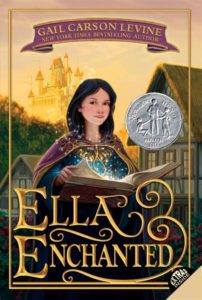
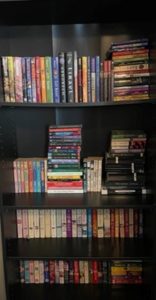 glimpse at that shelf.
glimpse at that shelf.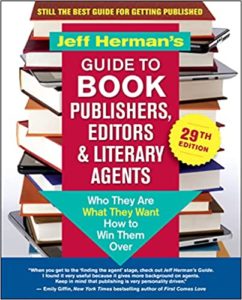
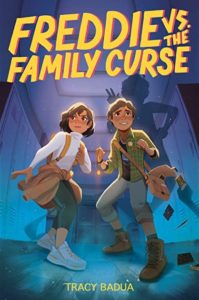
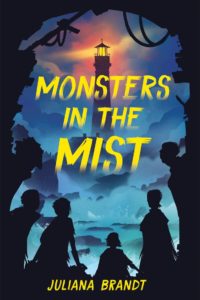
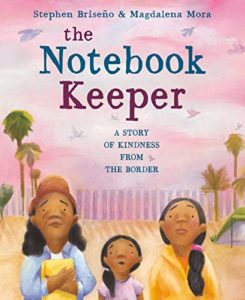
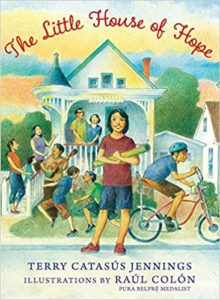
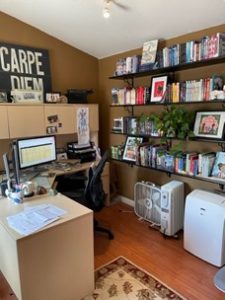
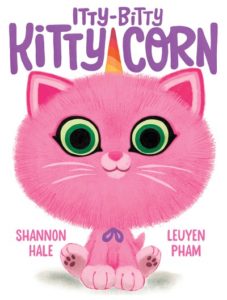
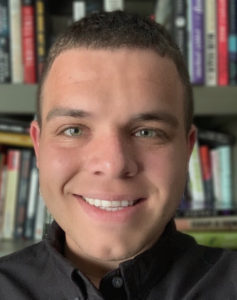 The February 2022 Industry Insider Interview at
The February 2022 Industry Insider Interview at 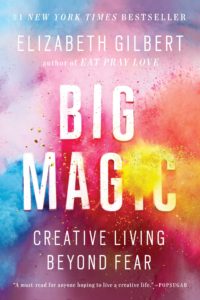
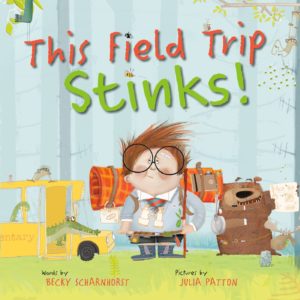
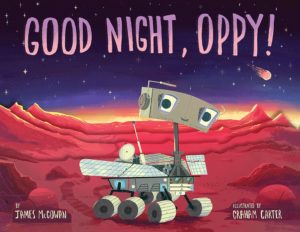
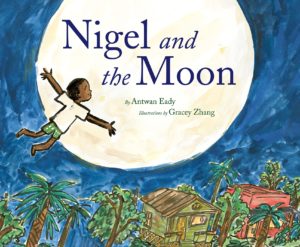
 Joshua Walls is a children’s author and travel writer who isn’t afraid to fuse, challenge, or deconstruct genres in the pursuit of creating compelling stories. Currently, he lives in Sarasota,
Joshua Walls is a children’s author and travel writer who isn’t afraid to fuse, challenge, or deconstruct genres in the pursuit of creating compelling stories. Currently, he lives in Sarasota,  This month’s Industry Insider interview is with Saba Sulaiman, a literary agent at Talcott Notch Literary Services. While I could put all kinds of traditional bio things here, I’m going to instead offer part of her own terrific Twitter bio. “Eternally recovering from maternity leave. Probably hiding behind the crib, eating cake.” With an awesome Twitter bio like that, what more do you need to know?
This month’s Industry Insider interview is with Saba Sulaiman, a literary agent at Talcott Notch Literary Services. While I could put all kinds of traditional bio things here, I’m going to instead offer part of her own terrific Twitter bio. “Eternally recovering from maternity leave. Probably hiding behind the crib, eating cake.” With an awesome Twitter bio like that, what more do you need to know?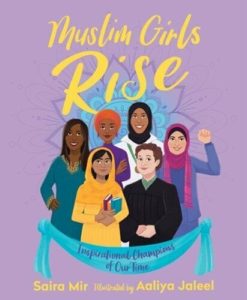
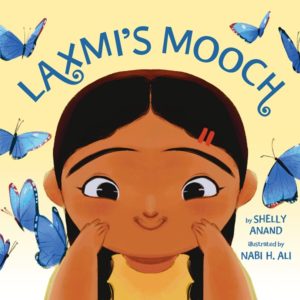
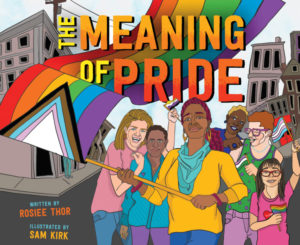
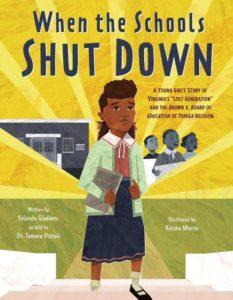
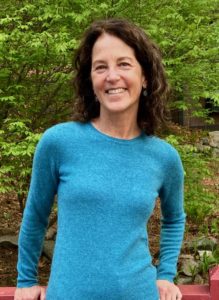 This month’s Industry Insider interview is with Elizabeth Bennett, a Senior Literary Agent and Partner at Transatlantic Agency. She’s spent her entire career in the children’s publishing industry, having worked in marketing, product development, and editorial at such companies as Scholastic, Reader’s Digest, and Houghton Mifflin Harcourt. One especially cool thing she did at
This month’s Industry Insider interview is with Elizabeth Bennett, a Senior Literary Agent and Partner at Transatlantic Agency. She’s spent her entire career in the children’s publishing industry, having worked in marketing, product development, and editorial at such companies as Scholastic, Reader’s Digest, and Houghton Mifflin Harcourt. One especially cool thing she did at 